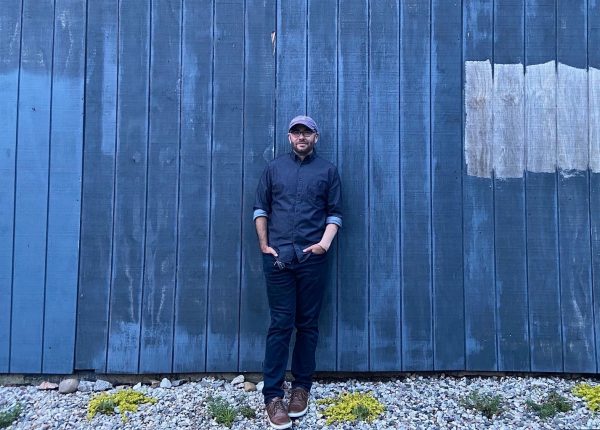
Oliver Haimson is an assistant professor at the School of Information. In his career, he focuses on ensuring that medical information is accurate, accessible, easy to locate, and relevant to a diverse set of LGBTQ+ identities and experiences. In his free time, he enjoys exploring parks and nature preserves on his bike.
Tell us about your work.
With my research, I focuses on understanding how marginalized individuals and communities, such as transgender and LGBTQ+ people, use social technologies, especially during times when their identities and lives are changing, and what some of the barriers may be for these groups to use tech. With those findings, we can take the next steps to design and develop technologies specifically to address some of the challenges marginalized groups face.
What is the biggest challenge you face in your work?
Academic research often feels relatively far removed from real-world technological innovation that can actually make positive social impact. Because academic work requires a lot of methodological rigor and has to be in conversation with the previous research on the topic, it can take a long time to conduct a research study. Even then, the research outcome may have potential to help people, but it takes another several steps to actually develop and deploy technology. Academics rarely have the skills, time, energy, and funding to accomplish this last part. So, sometimes it feels like we are getting close to making real world impact and helping people, but it’s a challenge to actually get there.
What should be considered in terms of LGBTQ+ needs as new health technology is developed?
The relationship between people’s bodies, identities, and health needs can be very complex; there is no easy way to determine by looking at someone what their gender-related health needs may be. So, when health technologies are designed for “average” users, they will often fail to account for the needs of marginalized populations like transgender, non-binary, and LGBQ people. This is one way health inequities increase. For instance, in my PhD advisee Dan Delmonaco’s research, they found that Google searches about sex ed information return results catered to cisgender, heterosexual people. Information for LGBTQ+ people is much harder to find, and when it is available, difficult to verify. In my research group, we approach these types of problems by working to design technology with and especially for LGBTQ+ people, and I would suggest similar approaches for anyone developing new health technologies.
How can university platforms support trans health information seeking?
University platforms could help by providing a curated list of accurate information that is searchable and filterable based on topics and identities. We know that for trans people, getting information from trans communities is important, but having a trusted list of curated resources can help in situations where people are unsure whether information is accurate. My research group – including students Dan Delmonaco, Christian Paneda, and Shannon Li – has been working on a collaborative project with the Community Health Access Initiative (CHAI) project at the School of Public Health, in which we helped them redesign their website to provide comprehensive resources to LGBTQ+ young people. In the research we did to inform this site design, we learned how important a curated resource site like this can be for people who are searching for health information online. Since universities often house medical facilities and are already in a position to be health resources for students, keeping a curated list (or partnering with community organizations that provide such a list) can really help gender and sexual minority students to access the information they need.
How can websites better support trans users?
“Together, safety, privacy, and content warnings create an online space where trans people can simultaneously build community, find support, and express both the mundanity and excitement of trans life. Yet in each of these areas, we also learned ways that the site can improve. We provide implications for how social media sites may better support trans users, as well as insular communities of people from other marginalized groups.”
We know that trans people frequently share trans health information in online communities. So, enabling trans people to easily find and join online trans health communities is vital. Sites also need to ensure that privacy features maintain safe information exchange and prohibit unwanted audiences. Additionally, current platform policies often hinder users from accessing trans health information, for instance when names and accounts are heavily tied to legal identification; such policies should be revised. Finally, misinformation and hate speech are serious barriers to trans health information seeking, and an important area for platform improvements, such as enabling users to flag inaccurate content and sources.
What do you enjoy most about your job, or what gives you the most satisfaction?
My favorite part of my job is helping to train the next generation of researchers! I have four PhD students who I advise, and then I mentor several masters and undergraduate researchers as well. Often, student researchers come in with little or no research experience, but lots of motivation and curiosity. We work collaboratively and they learn how to develop research questions, design studies, collect and analyze data, and eventually begin to answer some of the questions they came in wondering about!
What do you do for fun?
My main hobby is bike riding. In 2020, I biked to all 162 parks and nature areas in Ann Arbor! More recently, some friends and I biked the full length of the Border to Border trail, starting in Livingston County and biking through Washtenaw all the way to the Wayne County border.
